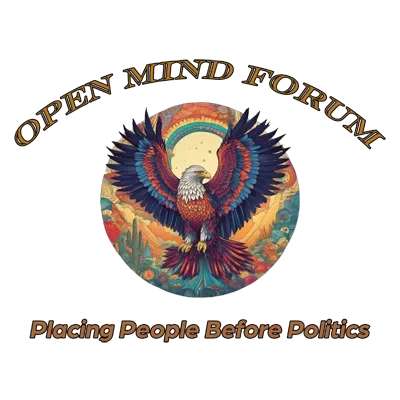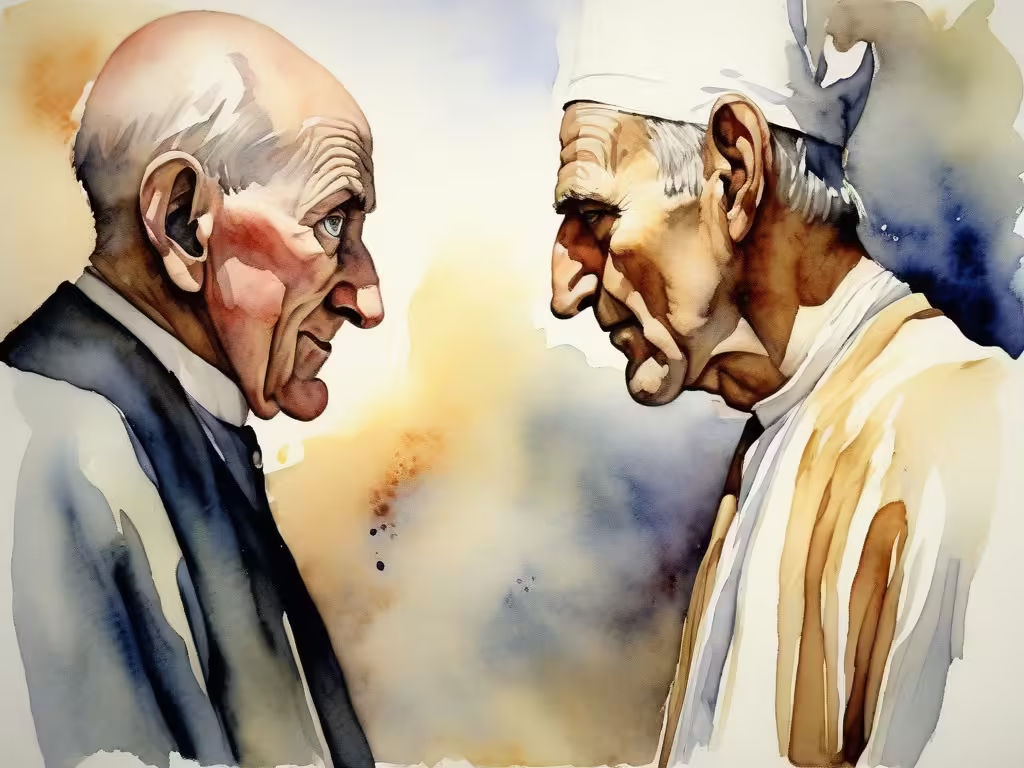The Dangers of Mythological Literalism in Society
Introduction to The Monotheistic Paradox
The Monotheistic Paradox arises when believers elevate religious myths to the status of irrefutable truth. While mythology plays an important cultural role, treating it as absolute truth creates dangerous consequences for society. Thus, the conflict between religious literalism and evidence-based knowledge undermines education, human interaction, and the pursuit of truth. This essay explores these dangers, using examples from Christianity, Orthodox and Conservative Judaism, and Islam to show how rejecting empirical evidence in favor of myth threatens intellectual and societal progress.
Monotheistic Paradox: Conflict Between Myth and Evidence
Religious literalism leads to a direct conflict between mythological beliefs and empirical evidence. Many fundamentalists across Christianity, Orthodox and Conservative Judaism, and Islam The Monotheistic Paradox maintain that the Earth is only a few thousand years old, based on their sacred texts. Science, however, has shown that the Earth is about 4.5 billion years old (National Aeronautics and Space Administration, 2021). This discrepancy reveals the Monotheistic Paradox, where myth clashes with scientific facts.
The consequences of this Paradox are significant. When religious groups reject scientific evidence, they promote ignorance and hinder intellectual development. In Orthodox Jewish

communities, schools often focus on Torah studies and ignore evolutionary biology (Sherman, 2019). Similarly, Islamic educational systems in countries like Turkey and Saudi Arabia restrict the teaching of evolution (Edis, 2007). The suppression of scientific knowledge in these communities thus, highlights the global scope of the Monotheistic Paradox.
Undermining Education: The Impact of Religious Literalism feeds The Monotheistic Paradox
The Monotheistic Paradox has a profound impact on education. When schools teach religious myths as factual history, they undermine scientific literacy. In the United States, many states have passed laws allowing creationist ideas to be taught alongside or instead of evolutionary theory (Branch & Scott, 2020). This approach, therefore, weakens students’ understanding of science, leaving them ill-equipped to navigate modern society’s complex issues.
The effects of this educational gap are far-reaching. Students who receive religiously based science instruction show lower levels of scientific literacy than those in secular educational systems (Moore, 2019). This trend also occurs in religious schools across Jewish and Muslim communities. Orthodox Jewish schools, for instance, emphasize biblical stories over scientific explanations of natural history (Levenson, 2019). In many Islamic countries, curricula reinforce a creationist worldview, leaving students unable to engage critically with scientific discoveries (Edis, 2007).
These educational failings reflect the Monotheistic Paradox’s broader impact on society. Without a strong foundation in scientific literacy, future generations struggle to address global challenges such as climate change, technological innovation, and public health crises.
Monotheistic Paradox: Societal Consequences of Mythologized Truth
Beyond education, the Monotheistic Paradox affects societal interactions, fostering intolerance and division. When groups elevate their religious narratives to absolute truth, they reject pluralism and resist societal progress. This binary worldview—where believers are righteous, and non-believers are immoral—creates a hostile environment for open discourse.
Christian nationalism in the United States illustrates this Paradox. Religious myths about America’s divine mission fuel exclusionary politics (Whitehead & Perry, 2020). In Israel, Jewish settlers use biblical claims to justify land expansion, often at the expense of human rights (Shulman, 2012). In parts of the Islamic world, political Islam frames governance through mythological truth, leading to theocratic policies (Edis, 2007).
These examples show how the Monotheistic Paradox can destabilize societies. When religious myth dominates public life, political polarization deepens, and secularism becomes viewed as an existential threat. Hence, this dynamic encourages intolerance and hinders cooperation on critical issues that require diverse perspectives.
The Philosophical Challenge: Mythology vs. Truth and The Monotheistic Paradox
The Monotheistic Paradox raises important questions about truth. In a society that treats mythology as fact, the very notion of truth becomes distorted. Philosophers like Foucault (1980) argue that truth is shaped by power dynamics rather than objective reality. Religious institutions, holding significant influence, shape public perceptions of truth by promoting their mythological narratives as fact.
This creates a fragmented reality. When religious myths are treated as empirical truth, society struggles to reach a consensus on basic facts. Issues like climate change, vaccines, and human rights become contentious because groups reject scientific findings in favor of religious doctrine. Without a shared understanding of truth, societies cannot address global challenges effectively.
The Monotheistic Paradox: The Role of Critical Thinking
Addressing the Monotheistic Paradox requires a commitment to critical thinking. Critical thinking encourages individuals to question assumptions and evaluate evidence before drawing conclusions. Schools must play a crucial role in fostering this mindset. By teaching students scientific methods and the importance of evidence-based reasoning, education can counter the influence of religious literalism.
Promoting critical thinking will help society better navigate the tension between religious narratives and empirical knowledge. Individuals can learn to appreciate the metaphorical and moral lessons of religious myths without mistaking them for historical or scientific truth. This approach fosters intellectual curiosity and encourages tolerance of diverse perspectives.
Conclusion
The Monotheistic Paradox threatens the progress of education, societal cohesion, and the pursuit of truth. Religious literalism across Christianity, Orthodox and Conservative Judaism, and Islam rejects scientific evidence in favor of myth, leading to dangerous consequences. Education systems that accommodate these beliefs undermine scientific literacy and critical thinking. Societies that treat myth as fact promote intolerance and division. To resolve this issue, individuals and institutions must promote critical thinking and prioritize evidence-based knowledge. Only by addressing the Monotheistic Paradox can we ensure a more informed, tolerant, and just society.
___________________________________________
Sources Cited
Branch, G., & Scott, E. (2020). The creationism controversy: An encyclopedia. ABC-CLIO.
Edis, T. (2007). An illusion of harmony: Science and religion in Islam. Prometheus Books.
Foucault, M. (1980). Power/knowledge: Selected interviews and other writings 1972–1977. Pantheon Books.
Levenson, J. D. (2019). Creation and the persistence of evil: The Jewish drama of divine omnipotence. Princeton University Press.
Moore, R. (2019). The battle over evolution: How teaching the history of evolutionary thought can resolve conflicts. The American Biology Teacher, 81(5), 299–306. https://doi.org/10.1525/abt.2019.81.5.299
National Aeronautics and Space Administration. (2021). How old is Earth? https://www.nasa.gov/vision/earth/environment/earth_age.html
Sherman, R. (2019). Orthodox Judaism confronts modernity: A study in ideology and politics. SUNY Press.
Shulman, D. (2012). Dark hope: Working for peace in Israel and Palestine. University of Chicago Press.
Whitehead, A., & Perry, S. (2020). Taking America back for God: Christian nationalism in the United States. Oxford University Press
___________________________________________
Suggestions for Further Reading
- Aslan, R. (2011). No god but God: The origins, evolution, and future of Islam.
- Armstrong, K. (2006). The great transformation: The beginning of our religious traditions.
- Collins, F. S. (2006). The language of God: A scientist presents evidence for belief.
- Dawkins, R. (2006). The god delusion.
- Dennett, D. (2006). Breaking the spell: Religion as a natural phenomenon.
- Harris, S. (2005). The end of faith: Religion, terror, and the future of reason.
- Hitchens, C. (2007). God is not great: How religion poisons everything.
- Sacks, J. (2011). The great partnership: Science, religion, and the search for meaning.
- Shermer, M. (2015). The moral arc: How science makes us better people.
- Wright, R. (2009). The evolution of God.
Disclaimer: The images and videos in this post are AI-generated creations, intended purely for illustrative and conceptual purposes. They are not real-life representations and should not be interpreted as such. Their sole purpose is to offer a visual means of exploring the topics discussed in this post.




